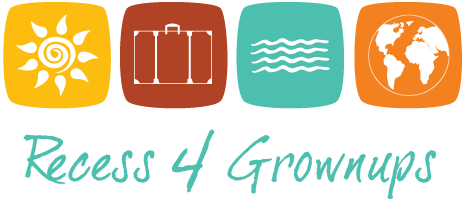The Secret of the Words

When it comes to travel, it’s very important to know how to read between the lines of a travel offering, so I wanted to provide a little guide of usual terms.
Travel planning is increasing, which is exciting as we get back to exploring the world.
As you look at different travel experiences, whether it’s a shore excursion on a cruise, a day tour in a European city, or a full escorted tour for ten days, it’s important to understand the wording and what it really means.
There are some little nuances that can make a big difference in your expectations.
Often, we can assume more will be delivered than what is truly being conveyed, so here’s a list of words and what they typically mean.
Words used in a tour description
See – This means you can see the outside of a site or attraction as you pass by.
View – View can mean the same as see, or sometimes it can be more, with the motorcoach stopping for a view from the outside of the attraction and time to take a picture.
Visit – This means you will get out of the motorcoach and walk around the site if it is outdoor like a garden or an estate, and/or go inside the specific attraction.
Free time on your own. Can be described as ‘time at leisure’, ‘independent time’, or ‘time to explore’.
‘You may enjoy…’, ‘Perhaps you could try…’, or ‘Consider exploring…’ – This phrasing means you will have some free time, and the cost of the suggested site is not included in your tour. There may be optional tour offerings for an additional cost, or sometimes these are just suggestions on how to spend your free time.
Sightseeing tour – Sometimes conducted by a local city guide, there is typically a stop or two, where members of tour get off the coach to see a particular site up close, or to visit an attraction, during the orientation around town.
Panoramic or orientation tour – Typically means a drive around the city pointing out key sites and attractions, but staying on the motorcoach the whole time, until arriving at a specific destination mentioned in the description.
Other Itinerary Terms

All-inclusive – This is a subjective term, depending on the destination or travel style. In the Caribbean or Mexico, ‘all-inclusive’ typically means that accommodations include all the meals, alcoholic beverages, and non-motorized water sports in the quoted price. On a cruise, ‘all-inclusive’ typically includes meals, alcoholic beverages and gratuities, but on some cruise lines it could also include shore excursions or coach airfare. So that demonstrates the key point: read the details, and if you have questions, call and ask.
Transfers – This usually means the transportation between the airport and hotel at arrival and departure. If on a group tour with a specific start and end date, typically the transfers are only offered on those definted dates, and will not be provided if you decide to arrive a day or two earlier or stay later.

Buffet breakfast – Typically includes more choices with some type of protein such as eggs or breakfast meats.
Continental breakfast – Usually consists of breads, pastries and rolls, with condiments such as butter and jam, along with tea or coffee. Often in France or Italy.
When you are reading a tour or shore excursion description and are unsure what it really means, the best plan is to call and ask. It’s best not to assume anything that is not clearly stated.

